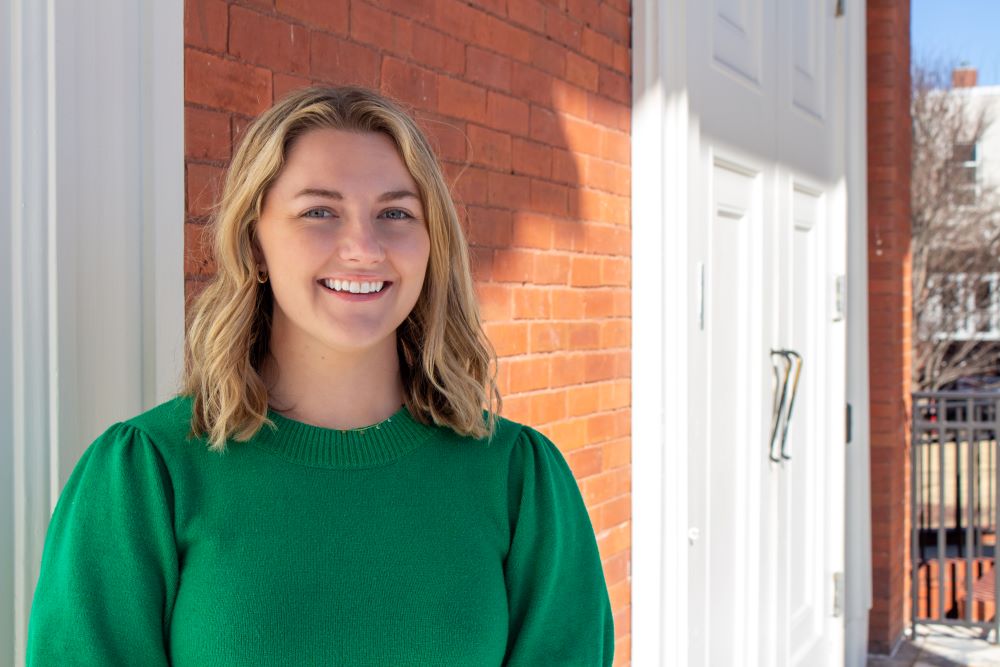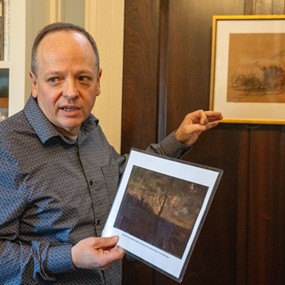History doctoral student investigates Alabama’s underfunded public schools

Brucie Porter, a doctoral student in Auburn University’s Department of History, hopes to change the conversation around school funding through researching the history of rural, low-income and predominantly Black public schools.
Porter’s project, “The System Works as Intended: Alabama’s Property Tax Structure and Public School Systems,” analyzes the relationship between land, taxes and education. Porter argues the state’s property tax system disadvantages schools in rural, predominantly Black counties.
“Oftentimes, unfortunately zip codes do determine whether a child gets equitable education,” Porter said. “In Alabama, we have a system where we designate and assess property based on the type of land that it is, so agricultural or rural land is assessed differently than suburban or industrial land. Because of that, for schools in rural areas, their land is assessed at vastly below their actual market value and receive less in property taxes for public education.”
Two noteworthy legal cases that challenged the property tax system, Lynch v. Alabama in 2014 and Knight v. Alabama in 2007, are pillars of Porter’s dissertation. Lynch and Knight argued the state’s property tax system is discriminatory, as it keeps school systems with predominantly Black students underfunded.
“Those two cases in particular draw a straight line from the situation that we see post-Brown v. Board of Education, the present day in terms of school systems being separate largely by race and also the vast funding differences we have between schools,” Porter said. “Both decided that courts were not the place to redress those inequities and leaves open this question of if courts can't fix it, then who can?”
Porter said the Alabama tax policies that disadvantage rural schools were made law after civil rights victories, including the Voting Rights Act and the desegregation of schools, and point to a pattern of financial inequity as a way to perpetuate discrimination.
She hopes her research can start an interdisciplinary conversation about history, economics and education that addresses how the property tax system can be improved for the benefit of underserved schoolchildren.
“Taxes are an easy way to shuffle in discrimination because they are complicated,” Porter said. “For the everyday lay person, when you have calls for lowering taxes, but also improving school systems, it might not be immediately clear that you can't have both necessarily in the way that we would like to have both. Just opening that conversation to showcase how this policy is working on an everyday level in our school systems in Alabama, I'm hoping that we can join conversations on how to improve it.”
Porter’s dissertation won the Wayne Flynt Endowed Graduate Research Award in Alabama History and Culture in fall 2023, awarded to research on subjects that enrich knowledge of Alabama’s past and contribute to Alabama history education.
The Department of History in the College of Liberal Arts hosts several renowned Southern historians, including Professor and Director of Graduate Studies Jennifer Brooks, who serves as Porter’s advisor, and Hollifield Associate Professor of Southern History Elijah Gaddis and Draughon Associate Professor of Southern History Keith Hébert, who mentor Porter.
Gaddis and Hébert also connected Porter with the Alabama African American Civil Rights Heritage Consortium and the Alabama Historic Commission, where she serves as a research fellow.
“A lot of times being a liberal arts student, you're sort of faced with this declination narrative, where everyone's telling you that the job market's awful and nobody values liberal arts anymore,” Porter said. “I really appreciated that the faculty at Auburn have made a consistent effort to introduce me to opportunities both inside and outside of academia to broaden my skillset and showcase that the skills you cultivate as a history student, as a liberal arts student, are critical to communities and they will always be valued.”
Tags: History Research Students Center for the Arts and Humanities






